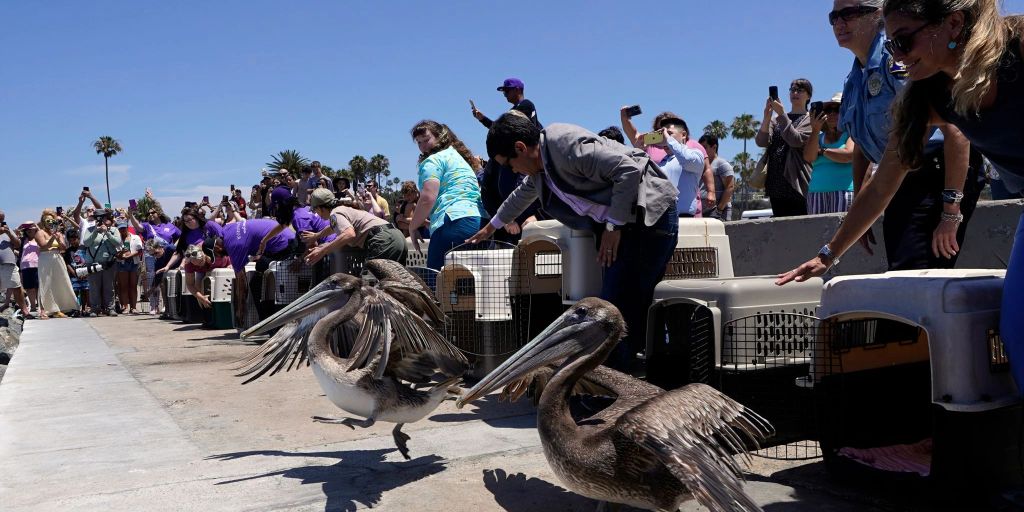After almost two months of care, the first twelve of a total of 55 brown pelicans have been released back into the wild on the Pacific coast of California.
Ad
the essentials in brief
- After months of care, several pelicans have been released into the wild in the USA.
- In early May, more than 700 animals were collected around Los Angeles.
- Hundreds of animals died – the cause is still unclear.
Several weeks ago, hundreds of pelicans were found in critical condition near Los Angeles. They are considered an important part of the Pacific Coast ecosystem. Now some of them have been released.
Those birds have recovered to the point where they can be released, said Debbie McGuire, executive director of the Wetlands and Wildlife Care Center in neighboring Huntington Beach, south of Los Angeles.
In early May, more than 700 pelicans were collected in the region 300 kilometers north and south of Los Angeles – all emaciated, dehydrated and hypothermic.
Some were full of parasites, others had injuries like broken wings. About 200 pelicans could only be recovered dead, others died after a short time. Brown pelicans are an important part of the Pacific Coast ecosystem, feeding on northern anchovies, Pacific sardines, and mackerel.
suspected climate change
According to the California Department of Fish and Wildlife, despite laboratory tests on 21 dead animals, it is unclear what the cause of the problems could be. All signs point to starvation of the birds, there is no evidence of disease or parasites as a trigger, explains Tim Daly, a spokesman for the agency.
Debbie McGuire, who has been caring for the animals of the coast for three decades, suspects climate change as the culprit. As she explained to the newspaper “Orange County Register”, the pelicans dived up to two meters deep in the sea and collected the fish in their large throat pouch.
However, when the water gets warmer, less oxygen is dissolved and the fish swim deeper. Only when whales or dolphins drive the schools back to the surface could the hunting birds get their share.
–
More on the subject:
climate change water
–


